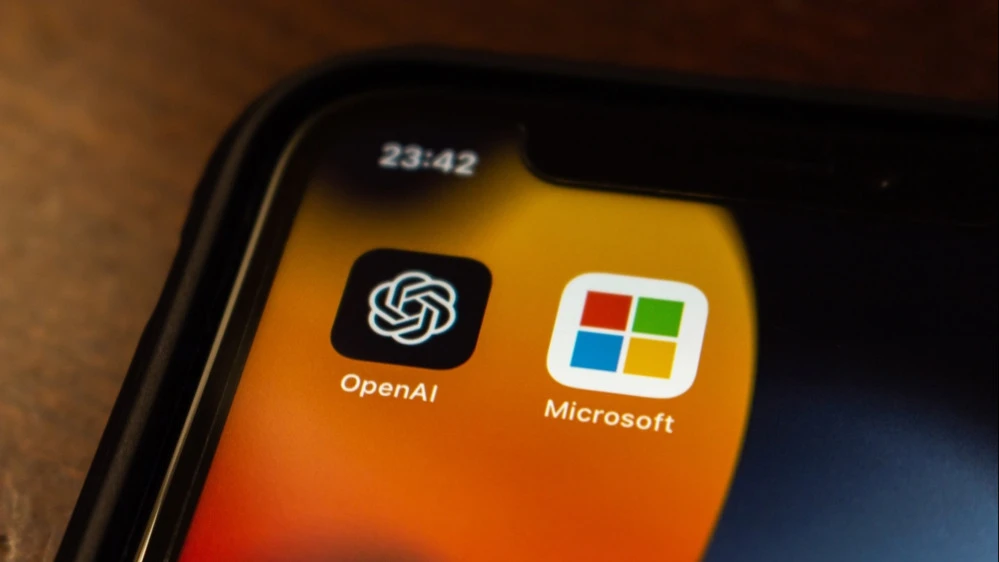OpenAI has started selling its chatbot at a discount. This is a blow to its investor Microsoft
This decision was taken by OpenAI against the backdrop of strained relations between the partners

ChatGPT developer OpenAI has started selling the enterprise version of the chatbot at a discount, entering direct competition with Microsoft's product. Its Copilot for Microsoft 365 is more expensive, and such a confrontation could hit its revenue. Copilot is built on models from OpenAI, ChatGPT uses Microsoft's data centers, and the tech giant itself is a key investor in OpenAI.
Details
OpenAI has started offering the enterprise version of its chatbot - ChatGPT Enterprise - at a discount, reports The Information. The discount from 10% to 20% is given to customers who additionally buy other products: OpenAI API, Deep Research agent or Codex software agent, the publication writes, citing its sources.
OpenAI's decision could deal a blow to Microsoft as the tech giant offers competing products, particularly the Copilot app and similar AI models, explains Seeking Alpha.
Copilot is an AI assistant built into Microsoft 365 that works in Word, Excel, Outlook, Teams, etc., while utilizing models from OpenAI. The product costs business customers with an enterprise subscription $30 per user per month;
A Microsoft spokesperson said in response to Seeking Alpha's inquiry that the company offers competitive pricing compared to products like ChatGPT and that it would be incorrect to claim as if it never offers comparable discounts.
The cost of the issue for OpenAI
According to data The Information, OpenAI told investors that it expects to earn about $15 billion from ChatGPT business clients by 2030. Earlier this year, the company also informed that revenue from ChatGPT Enterprise totaled $100 million, the publication wrote, without specifying the period in question.
In February, OpenAI said that the number of paid enterprise subscribers had surpassed 3 million, including ChatGPT Enterprise, ChatGPT Team and ChatGPT Edu customers.
A rift between partners
Relations between Microsoft and OpenAI have gotten tenser of late. According to The Wall Street Journal's interlocutors, the parties have reached an impasse in negotiating the terms of the deal, which involves OpenAI buying the startup Windsurf for $3 billion. Under the existing agreement, Microsoft has access to all of OpenAI's intellectual property. However, the startup doesn't want its developments to be affected.
The companies are also at odds over how much of a stake Microsoft will take in OpenAI after its reorganization in exchange for the $13 billion it previously invested. According to word WSJ sources, the tech giant is pushing for a larger stake than it is willing to give OpenAI. The options under discussion range from 20% to 49%.
On June 19, the Financial Times reported, citing its sources, that Microsoft is ready to pull out of talks to restructure OpenAI into a for-profit company. For OpenAI, this would mean losing some funding from Japanese conglomerate SoftBank and other investors;
According to data from the WSJ, in recent weeks, OpenAI executives have seriously discussed the "nuclear option" of going to regulators to complain about Microsoft's anticompetitive behavior. Options include both a review of contract terms and a public campaign against the partner. The Information's sources confirmed this.
OpenAI wants to weaken Microsoft's control over its products and computing resources, and get Microsoft to agree to transform itself into a for-profit company. Without that, the chatbot developer risks losing $20 billion in investment, stated the article.
OpenAI previously received permission from Microsoft to lease servers and data centers from other companies and is now working with CoreWeave, Google Cloud and Oracle, as well as building Stargate infrastructure for itself in partnership with SoftBank and cloud infrastructure owner Oracle.
